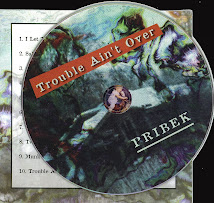ALL MUSIC LOVERS MUST READ THIS ARTICLE HIGHLIGHTED HERE IN MOOPIG -- ARTICLE IN ENTIRETY HERE ...!
Music: It's in your head, changing your brain - CNN.com: Excerpt |
(CNN) -- Michael Jackson was on to something when he sang that "A-B-C" is "simple as "Do Re Mi." Music helps kids remember basic facts such as the order of letters in the alphabet, partly because songs tap into fundamental systems in our brains that are sensitive to melody and beat. ( Elizabeth Landau, CNN. Sat May 26, 2012. LINK)
'via Blog this'
Music was First
Bone flutes have been dated to about 40,000 to 80,000 years ago, so people were at least playing music. Experts assume that people were probably singing before they went to the trouble of fashioning this instrument, Levitin said. In Judaism, the Torah was set to music as a way to remember it before it was written down.
"The structures that respond to music in the brain evolved earlier than the structures that respond to language," Levitin said.
When you sit down at the piano and learn how to play a song, your brain has to execute what's known as a "motor-action plan." It means that a sequence of events must unfold in a particular order, your fingers must hit a precise pattern of notes in order. And you rehearse those motor movements over and over, strengthening the neural circuits the more you practice.
Musicians can't see inside their own brains, but they're aware of moments of tension and release in pieces, and that's what arrangers of music do.
"As you're anticipating a moment of pleasure, you're making predictions about what you're hearing and what you're about to hear," he said. "Part of the pleasure we derive from it is being able to make predictions."
Curiously, some birds can mimic what they hear and move to beats. Patel's research with a cockatoo suggests the beat responses may have originated as a byproduct of vocal mimicry, but also play a role in social bonding, Patel said. Armies train by marching to a beat, for instance. Group dancing is a social activity. There also are studies showing that when people move together to a beat, they're more likely to cooperate with each other in nonmusical tasks than if they're not in synch.
There's also some evidence to suggest that music can help Alzheimer's patients remember things better, and that learning new skills such as musical instruments might even stave off dementia.
"If you think about trying to teach a toddler how to read, and the alphabet, and all that stuff, before they can speak, we'd realize how silly that really is," Wooten said. "Kids most of the time quit, because they didn't come there to learn that. They came to learn to play."
He remembers learning to play music in an immersive way, rather than in a formulaic sequence of lessons. When he was born, his four older brothers were already playing music and knew they needed a bass player to complete the band. "My brothers never said, 'This is what you're going to do,'" he said.
Wooten took this philosophy and created summer camps to get kids excited about music in a more natural way. ( Elizabeth Landau, CNN. Sat May 26, 2012. LINK) ... "
_________________________Reference
http://www.cnn.com/2012/05/26/health/mental-health/music-brain-science/index.html





No comments:
Post a Comment